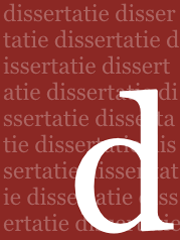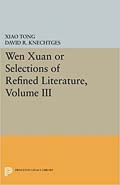start > Klassieke teksten > Late Han tot Tang > tekst
琴賦 Qin Fu
[Ch'in Fu]
Engelse titel: Rhapsody on the Zither
auteur / toegeschreven aan: Ji Kang / Xi Kang
Deze Rhapsodie van Xi Kang (zi Shuye) gaat over het edelste van alle Chinese muziekinstrumenten, de qin (citer). De qin was het instrument van de beschaafde heer. In de tijd van Xi Kang had het waarschijnlijk zeven snaren. Het lichaam was gemaakt van paulowniahout. Aan de kant het verst van de speler bevinden zich dertien kui (studs) die aangeven waar de snaren moeten worden ingedrukt.
Xi Kang zelf was een bekwame qin-speler, en in zijn voorwoord bekritiseert hij eerdere werken over muziekinstrumenten omdat hun auteurs niet voldoende kennis van muziek hadden. Zijn rapsodie is echter duidelijk schatplichtig aan eerdere stukken zoals Wang Bao's "Rhapsodie over de Panfluit [Panpipes]" en Ma Rong's "Rhapsodie over de Lange Fluit [Long Flute]" (Knechtgens 1996 p279)
Voorwoord Ji Kang in de Engelse vertaling van Wendy Swartz:
Literatuur en vertalingen
Hieronder kunt u een selectie maken van de verschillende publicatievormen en de taal. Ik beperk me tot vier taalgebieden (Nederlands, Engels, Frans en Duits). De meeste literatuur is overigens engelstalig. U kunt bij teksttype ook apart de vertalingen selecteren en U kunt desgewenst ook een specifieke auteur zoeken.
Boeken 1 tot 5 van de 5

Gary, Julie (2015). Esthétique de la Musique en Chine Médiévale: idéologies, débats en Pratiques chez Ruan Ji et Ji kang. *
Ook online.
Meer informatie...
Gulik, Robert Hans van (1969). Hsi K'ang and his Poetical Essay on the Lute. *
1e editie 1941, herziene editie 1969, Sophia University Tokyo
Meer informatie...
Knechtgens, David R. (1996). Wen Xuan or Selections of refined Literature, Volume III: Rhapsodies on Natural Phenomena, Birds and Animals, Aspirations and Feelings, Sorrowful Laments, Literature, Music, and Passions. Princeton University Press. *
ISBN10: 0691635293
Meer informatie...
Owen, Stephen & Swartz, Wendy (2017). The Poetry of Ruan Ji and Xi Kang. de Gruyter. *
ISBN13: 978-1501511851
Ook online.
Meer informatie...
Pisano, Luca (2023). The Qinshi 琴史 (History of the Qin) by Zhu Changwen 朱長文 (1041–1098). Ostasien Verlag.
ISBN13: 978-3940527271
Meer informatie...
Boeken 1 tot 5 van de 5




